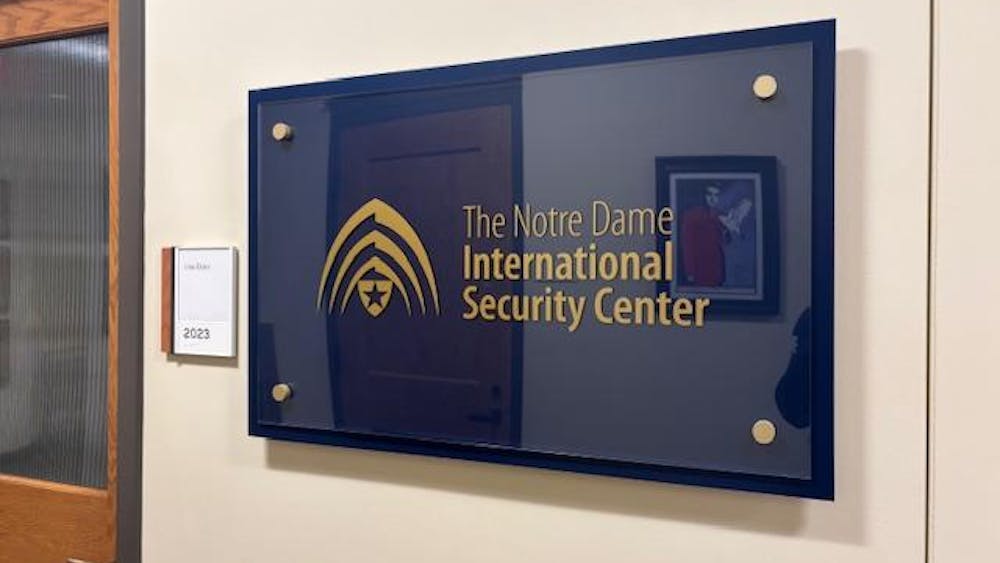Last Friday evening, the University of Notre Dame Law School hosted its third annual Interfaith Dinner to celebrate the community’s religious diversity in observance of the Muslim holy month of Ramadan, the Jewish Passover, Easter and the Baha’i Festival of Ridvan. It featured a catered meal and prayers offered by a delegated speaker from each of the religions represented at the dinner. The event took place in the Eck Commons with a notice that anyone was welcome to attend.
Nora Ibrahim, president of the Middle Eastern Law Students Association and a second-year J.D. candidate at Notre Dame Law School, expressed that the event is not planned with the intentions of promoting certain religions, but instead, to offer an opportunity to promote interfaith discourse and communal education.
“At such interfaith events, we bring a speaker from every faith tradition to talk about their own faith traditions,” she said.
She expressed that the goal of Notre Dame Law School, through its programming, is to establish and uphold an inviting religious community. Ibrahim indicated that selecting speakers that positively and academically represent religious orders is a top priority for interfaith dialogue.
“The speakers are people who are knowledgeable about the faith," Ibrahim said. "Professor Omar is not only Muslim, but he's educated in Islam. We have Father Aaron Michka, who is both. He is aware of Islam and Easter. He is Himself. He's a priest. He's aware of the Catholic tradition."
When asked about how individuals are hearing about and being invited to similar events hosted by Notre Dame Law School, Ibrahim expressed that the events are deliberately advertised in order to gain attention from as many people as possible.
“Invites are for students, faculty, staff and community members. It's open to everybody. It's very much an inclusive event, because we're celebrating a lot of people from a lot of different faith traditions,” Ibrahim said.
Robert Stockman, an event guest with a doctorate in religious studies from Harvard University and faculty member of the Department of Philosophy at Indiana University South Bend, indicated that Notre Dame has done an impressive job of remaining true to its Catholic tradition while striving towards religious inclusivity. He represented and spoke on behalf of the Baha’i religion.
“I am very impressed that the University has been so accommodating to religious diversity," Stockman said. "I have taught at many universities, and I think that Catholic institutions just do it better than a lot of schools actually."
Rabbi Shoshana Feferman, a rabbi at Temple Israel, formerly served in the Israeli army with the rank of sergeant major, and her husband, Robert Feferman, a Hebrew teacher and the vice principal of the Temple Beth-El in South Bend, were invited to the Interfaith Dinner formerly as representatives of Judaism.
When discussing the religious outreach by Notre Dame, Feferman expressed that the Campus Ministry department has been essential in preserving and initiating the relationship between the institution and Jewish communities in South Bend. He explained that the deep connection benefits both mutually and that the relationship is essential in a multitude of religious orders welcomed in partnership with Notre Dame.
“A lot of the religious affiliate work, specifically with the Jewish community, is actually through the Campus Ministry. They have been very accommodating to other religions,” Feferman said.










